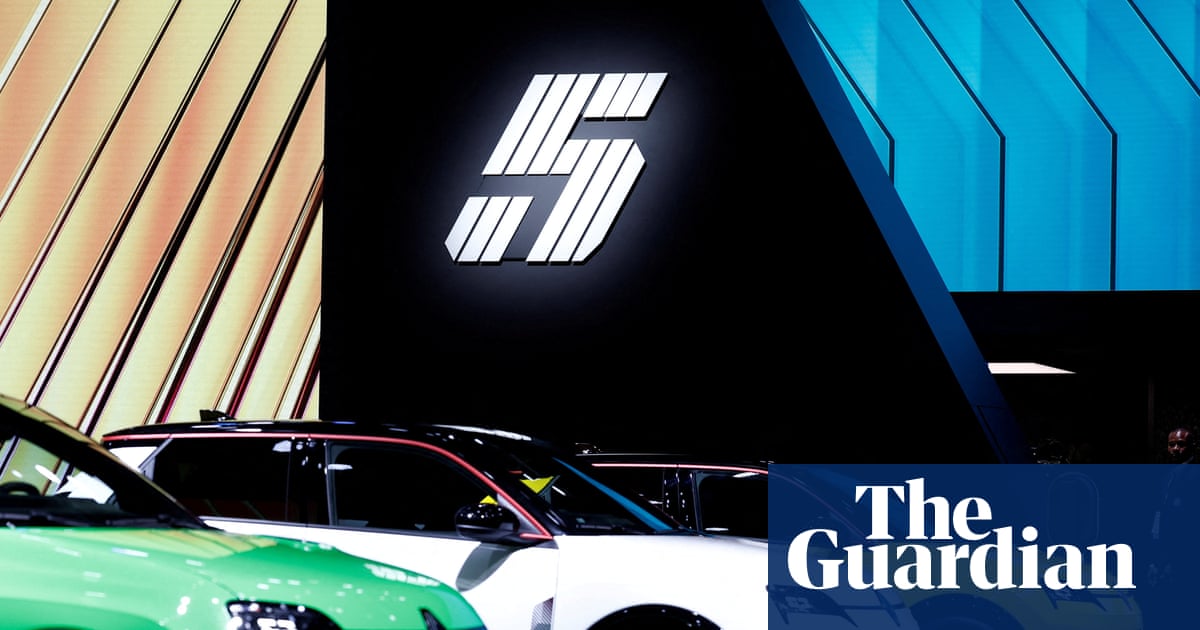British electric car sales hit a record high in September as new taxpayer subsidies helped to attract buyers in the most important month for the market.
Battery EV sales rose by nearly a third in September compared with a year earlier, to 72,800, according to preliminary figures from the Society of Motor Manufacturers and Traders (SMMT), a lobby group.
The UK government reintroduced an electric car grant in July after intense lobbying by carmakers who argued that they were struggling to meet targets on electric sales, known as the zero emission vehicle (ZEV) mandate.
The grant appeared to help some carmakers to sell more pure electric cars in September, while sales of plug-in hybrids, which combine a petrol engine with a smaller battery that can be recharged by cable, jumped by 56% to 38,300. Hybrid sales have boomed as struggling carmakers have shifted focus towards vehicles that are more profitable, amid intense competition, particularly from newer Chinese rivals.
The electric car grants of up to £3,750 apply to only about a quarter of battery cars on sale in the UK – including models from Citroën, Renault, Nissan and Vauxhall – because of rules on emissions during manufacturing that effectively block Chinese brands from benefiting, as well as an upper price limit of £37,000.
Heidi Alexander, the transport secretary, said: “Our discounts have sparked a surge in electric car sales, making them cheaper and within reach of more households than ever before.”
Pure electric and hybrid cars overall accounted for more than half of the market in September. They helped overall sales to rise by 14% compared with a year earlier, to 312,900, the strongest September since 2020. However, sales are well below levels seen before the coronavirus pandemic, amid cost of living pressures.
September is the key month for car retailers in the UK, as buyers return from holidays and number plates change to a new year, which helps vehicles to retain resale value.
Mike Hawes, chief executive of the SMMT, said: “Electrified vehicles are powering market growth after a sluggish summer – and with record ZEV uptake, massive industry investment is paying off, despite demand still trailing ambition.”
skip past newsletter promotion
Sign up to Business Today
Get set for the working day – we’ll point you to all the business news and analysis you need every morning
Privacy Notice: Newsletters may contain information about charities, online ads, and content funded by outside parties. If you do not have an account, we will create a guest account for you on theguardian.com to send you this newsletter. You can complete full registration at any time. For more information about how we use your data see our Privacy Policy. We use Google reCaptcha to protect our website and the Google Privacy Policy and Terms of Service apply.
after newsletter promotion
The share of electric car sales so far this year is 22.1%, well below the 28% headline target under the ZEV mandate. However, the mandate also includes significant “flexibilities”, under which carmakers gain credit for reducing emissions of the petrol and diesel cars they sell.
The government made the flexibilities more generous in April to help carmakers, despite the official Climate Change Committee warning that the concessions were likely to lead to higher carbon emissions. New Automotive, a thinktank tracking the mandate, estimated that the true target for battery car sales is below 22%.
David Farrar, policy manager at New AutoMotive, said the early evidence from the take-up of the electric car grant – which will help only the first 400,000 buyers – suggested that the scheme might have to close earlier than intended.
